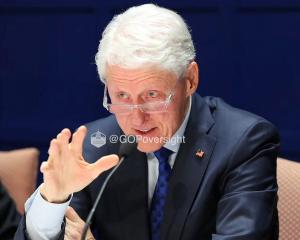Tears flowed freely as busy, bustling China paused to remember the estimated 50,000 who died in the 7.9 magnitude quake one week earlier, from office workers to street peddlers to rescuers probing rubble in an increasingly vain search for survivors.
The nation's catharsis on Monday peaked at Tiananmen Square, China's political and symbolic heart, where mourners suddenly burst into cries of "Long live China!" pumping their fists as they marched across the wide plaza.
Traffic froze on the highways threading through the country's megacities including Beijing, the capital, and the relentless boom of construction paused as workers perched 23-stories high atop the skeletal frames of unfinished skyscrapers joined a government-ordered three minutes of reflection.
In the quake zone, rescuers racing to free the dwindling numbers of survivors also interrupted their work to mark the exact moment the ground shook with enough power to render large parts of central Sichuan province into rubble.
"Our hearts are so heavy, so many of our compatriots are dead. As long as we try our best, we have some small hope," said rescuer Ma Cangchuan standing in the rubble remains of Beichuan town amid rescue crews in orange jumpsuits who, eyes downcast, cradled their white hardhats. The ceremony over, his team returned to work.
The national pause seemed all the more stark for a China that is usually in frenetic motion and it underscored the profound impact that the worst natural disaster in a generation has had on the country's 1.3 billion people.
"Chinese people are generally more introverted, and during these three minutes, they felt the support of each other and they could release their emotions," said Yin Pu, a Beijing psychologist at a training center recruiting volunteers to provide counseling in the quake zone.
The scenes were strangely similar to those of a week ago when buildings shook across China, sending hordes of office workers into the streets. This time, instead of confusion, there was sadness.
Monday was the start of an official three-day mourning period - the first in modern China for anything other than the death of a national leader.
Hundreds gathered in Beijing's Tiananmen Square, China's political heart, where a huge red national flag was lowered to half-staff in a solemn military ceremony at daybreak.
At 2:28 p.m. (0628 GMT), the crowd fell silent and stood, many with heads bowed, while air raid sirens wailed. The city's normally choking traffic halted in the middle of the street, and millions of drivers blared their horns.
When it stopped, hundreds started marching around the vast plaza, started chanting and punching their fists in the air. "Go China," ''Go Sichuan," ''Long Live China," people yelled, waving flags. Police asked them to disperse after about an hour.
The mood was hopeful and participants said completely spontaneous. "This is not the government organizing it," said Wang Xu, who said he was on the square in 1989 when it was the center of pro-democracy demonstrations. "This is the first time civilians have mourned in public."
In the commercial center of Shanghai, peddlers handed out small flags at "half-staff" - glued in the middle of the stick.
"In people's eyes we are just migrant hawkers. But we also care," said Zhang Yu, who gave up meager earnings from his usual trading to distribute the flags.
Trade was suspended on China's stock and commodities exchanges during the three-minute period. In Hong Kong, staff at the Disneyland park closed rides and halted performances.
On the Wangfujing shopping street in Beijing, people turned off their cell phones and wore white ribbons marked with the message "lovingly remember." Elsewhere in the business district, a crying cab driver stood next to his car with his hand on the horn, a white flower pinned to his blue polo shirt to symbolize mourning.
Chinese President Hu Jintao and other top Communist Party leaders - in dark suits with a white flower in their lapel - were shown on state television bowing their heads at a tribute in the central government compound of Zhongnanhai.













